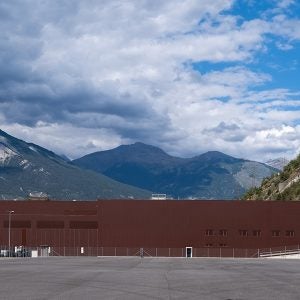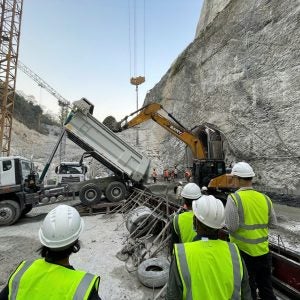the-british-dam-society (BDS) hosted a post-World Commission on Dams meeting in London, UK on 1 February. Over 100 individuals representing civil society, academia, governments and engineers attended the eight-hour session. Discussion focused on WCD’s final report and its implications for the future.
Achim Steiner, secretary general of WCD, congratulated the BDS on a successful day. ‘BDS had the courage to organise this meeting before the report was published several months ago,’ he said. ‘It has set an example of how we can work with one another to create an opening for progress.’
Speakers from the UK government’s Department for International Development; icold; the Irrigation and Water Management Institute; the UN Development and Environment Forum; and the conservation union IUCN, spoke about the impact of the report on international development; food and irrigation; the environment; sustainability; water supply and flood relief. There were both criticisms and praises for the report.
Geoff Sims, vice president of ICOLD, gave his own personal thoughts. ‘This is a fine report,’ he said. ‘It will contribute to the development of appropriate dam projects. It will be of great use and I urge everyone to read and use it.’
Sims focused on areas of the report that criticised the performance of dams. ‘We engineers must make existing projects work well before we continue to build more projects,’ he said. ‘We need to improve the existing efficiency of dams and acknowledge that operation and maintenance will cost more.’
Speakers and delegates criticised the report for insufficient detail relating to the development of dams and the link with food production and food prices. Another criticism was a generalisation of flood control benefits.
Steiner noted all comments. ‘All of these stand in their own right. They are fair observations of the report,’ he said.
Chairman Adrian Long, vice president of the Institution of Civil Engineers, reflected on one of the main observations of the day: the performance of existing dams: ‘This has been an intriguing day,’ he said. ‘As civil engineers we now have to work out the life cost of a project, including resettlement and the environment. It is a challenge for all of us. We need to study the performance of existing dams.’
For a full report on the meeting see the March issue of International Water Power and Dam Construction.






